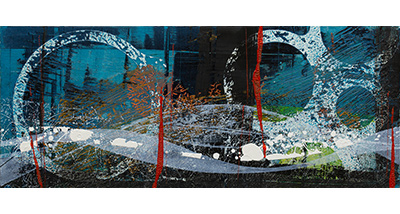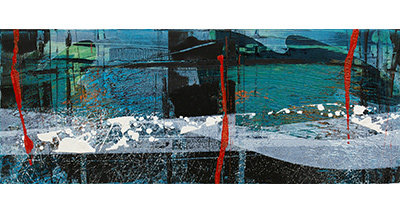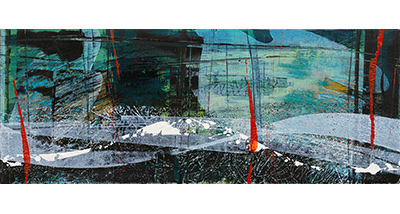Beyond the Sea-Roads
From 'Sea Stories' | Porthminster Gallery | St Ives
"And the white ships of winter lie, In the sea-roads of the moor..." - The Seasons in North Cornwall, Charles Causley

Beyond the Sea-Roads #01 | oil on board
Future memories of the Cornish coast

Beyond the Sea-Roads #02 | oil on board
The coast and filelds of North Cornwall

Beyond the Sea-Roads #03 | oil on board
Where the land meets the sea

Beyond the Sea-Roads #04 | oil on board
Longing for the Cornish coast

Beyond the Sea-Roads #05 | oil on board
Future memories of the Cornish coast

Beyond the Sea-Roads #06 | oil on board
Future memories of the Cornish coast

Beyond the Sea-Roads #06 | framed
In frame | Sold

Beyond the Sea-Roads #07 | oil on board
Future memories of the Cornish coast

Beyond the Sea-Roads #08 | oil on board
Future memories of the Cornish coast
In normal times, life in rural North Cornwall is punctuated by the comings and goings of the garden birds, the highlight being in early May as our swallows arrive from South Africa. They herald our summer. All is well.
This year, all has not been well, yet the birds remain, the Blackbirds and Robins seem to sing louder. They are trying to give reassurance. I don't know if the Robins really do need the compost turning for worms, but they ask just the same.
We are close to Launceston, the old County Town of Cornwall, once the home of arguably its most famous son, the poet Charles Causley. During this last year of work in the workshop I have thought many times of his poem 'The Seasons in North Cornwall'. In this the most extreme promentory in England, one is never far from the sea. Over the years we have taken for granted the hours spent amongst the rocks of hidden coves, perhaps gazing out to sea as the wavelets lap around our feet, sinking our toes into swirling eddies of sharp sand and shingle. Most years we also paddle our kayaks around Mounts Bay, off Marazion, and St Michael's Mount, and on the North Breton coast. This year our feet have remained dry, our kayak paddles unused. Looking back through photographs taken on these visits it is clear that those times have marked the passage of our days, mapped our seasons.
We must learn to treasure them more, but for now, we hold those memories close.
The Seasons in North Cornwall, by Charles Causley
O Spring has set off her green fuses
Down by the Tamar today,
And careless, like tide-marks, the hedges,
Are bursting with almond and may.
Here lie I waiting for old summer,
A red face and straw-coloured hair has he:
I shall meet him on the road from Marazion
And the Mediterranean Sea.
September has flung a spray of rooks
On the sea-chart of the sky,
The tall shipmasts crack in the forest
And the banners of autumn fly
My room is a bright glass cabin,
All Cornwall thunders at my door,
And the white ships of winter lie
In the sea-roads of the moor.










